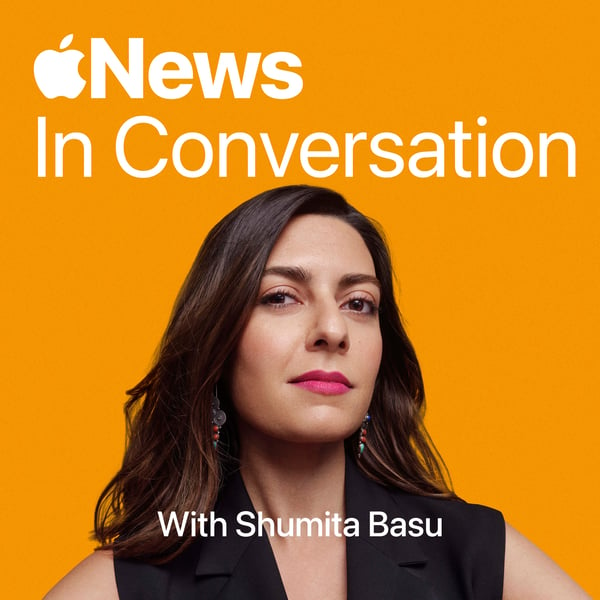The dark side of the global human-egg trade
Apple News In Conversation
Apple News
4.6 • 1.3K Ratings
🗓️ 6 February 2025
⏱️ 30 minutes
🧾️ Download transcript
Summary
In at least 6% of in vitro fertilization (IVF) cases, the eggs come from donors — and that number is growing. The scarcity and value of human eggs have given rise to a flourishing global industry already worth billions of dollars. A new investigation in Bloomberg Businessweek reveals how this sprawling and largely unregulated market is ripe for exploitation. Apple News In Conversation host Shumita Basu spoke with senior reporters Susan Berfield and Natalie Obiko Pearson about the stories of the women behind this booming business. Listen to the full interview on Apple Podcasts.
Transcript
Click on a timestamp to play from that location
| 0:00.0 | Hey there. Before we get into today's episode, I have a quick favor to ask. If you love this show, |
| 0:06.3 | please subscribe on Apple Podcasts and rate and review us. It really helps other people find us, |
| 0:11.8 | and it helps us know what you're liking and want to hear more of. Thank you. On with the show. |
| 0:20.6 | This is In Conversation from Apple News. |
| 0:23.9 | I'm Shemitabasu. |
| 0:25.3 | Today, the dark side of the global human egg trade. |
| 0:45.6 | Like millions of people around the world, Maria knew that she wanted to have kids. |
| 0:50.2 | She was in her late 30s, and she and her husband weren't able to conceive on their own. |
| 0:55.4 | So they decided to try in vitro fertilization, IVF, in their home country of Greece. |
| 1:01.8 | Their first two attempts failed. Then in 2020, on their third try, the clinic told her they successfully retrieved six eggs from her ovaries. A few weeks later, Maria was pregnant. |
| 1:08.1 | Four years went by when Maria, who was using a pseudonym for this story, was |
| 1:12.7 | summoned to the local police station. Waiting there for her were two police officers and a |
| 1:17.8 | psychologist. And what they told her, she found completely devastating. The fertility clinic she'd |
| 1:23.9 | worked with actually retrieved double the number of eggs they told her, and those |
| 1:28.7 | eggs had been used to create embryos for another woman. The egg is the most precious resource |
| 1:35.2 | in fertility, and it is limited. That's Susan Burfield, a senior investigative reporter at Bloomberg |
| 1:42.7 | Businessweek. Despite all the technology, you still need an egg and a sperm to create a baby, and sperm is pretty easy to come by. |
| 1:51.0 | In a deeply investigated piece, Susan and a team of reporters tell the stories of Maria and four other women who willingly or unwillingly are part of the global human egg market. |
| 2:03.1 | Here's Natalie Obico Pearson, another reporter on this story. |
| 2:06.1 | The person who is seeking the procedure is willing to pay almost anything. They're willing to |
| 2:11.7 | drain their bank accounts to pay for it. And that unfortunately means that the power balance |
| 2:17.3 | usually is with a higher paying customer who is able to compensate a woman that is less privileged who needs that money and so is therefore selling her eggs. |
... |
Please login to see the full transcript.
Disclaimer: The podcast and artwork embedded on this page are from Apple News, and are the property of its owner and not affiliated with or endorsed by Tapesearch.
Generated transcripts are the property of Apple News and are distributed freely under the Fair Use doctrine. Transcripts generated by Tapesearch are not guaranteed to be accurate.
Copyright © Tapesearch 2025.

